How Gareth Bale and Real Madrid sleep their way to the top
- Published
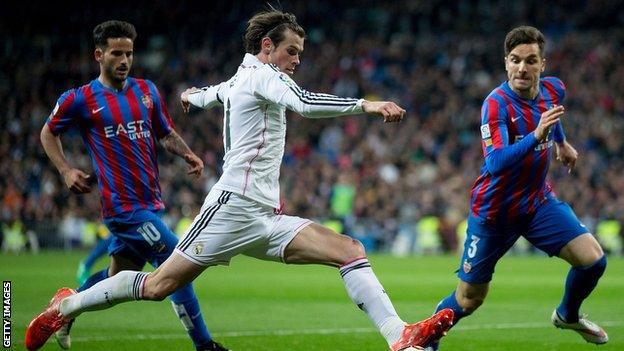
Why was Real Madrid forward Gareth Bale categorised as 'an owl'?
At 1pm every afternoon, the hustle and bustle of Real Madrid's Valdebebas training ground grinds to a halt and the facility resembles a ghost town.
A silence descends over the complex for the following two hours as players and staff close their eyes and drift into a siesta before waking and resuming their day - but they're not sleeping on the job.
The scene is a window into football's relentless pursuit of marginal gains as clubs across Europe turn to technology, purpose-built facilities and sleep experts to recharge their multi-million pound assets and gain a competitive advantage.
You snooze, you win
Tennis great Roger Federer and basketball star LeBron James are both advocates of sleeping for upwards of 10 hours per night, external and research shows the performance benefits of proper rest for athletes.
A study by Stanford University sleep expert Cheri Mah, external showed basketball players who increased their sleep duration to those levels improved shot accuracy by 9% in tests and recorded improved sprint and reaction times.
Take recovery for granted and the risks are great. One restless night is enough to weaken the immune system and increase the risk of illness. Sleep poorly for 64 hours or more and strength and power is reduced.
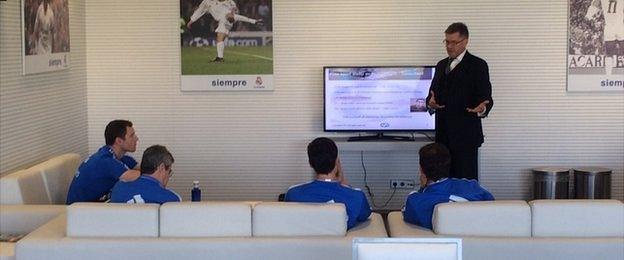
At clubs such as Real Madrid every aspect of a player's life - including sleep patterns - is monitored
Fatigue, often brought on by a number of games in a short period of time, increases levels of the hormone cortisol. This can then see the body begin to eat into its own protein stores and reduce a player's muscle mass, heightening the risk of strains and tears.
The brain's ability to send messages to and from different parts of the body to control movement also decreases, which impairs the sense of where limbs are positioned and the perception of strength of effort - making injuries such as ankle sprains more likely.
Helping 'owl' Bale overcome morning phobia
Those factors prompted Real's sports scientist and conditioning coach, Englishman Jack Nayler,, external to invite elite sport sleep coach Nick Littlehales to the club in December 2013 to deliver a workshop to manager Carlo Ancelotti and his squad.
Littlehales began his work in the field prescribing specific mattress types to Gary Pallister and Ryan Giggs at Manchester United in the mid-1990s in a bid to cure their respective back and hamstring problems.
He has since gone on to work with the England football team, Team GB, 2012 Tour de France winner Sir Bradley Wiggins and a host of Premier League clubs, including Manchester City, Arsenal, Chelsea and Southampton.
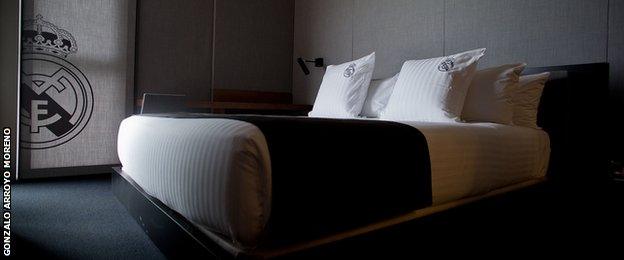
Real Madrid have 81 bedrooms at their training complex for players and staff to take a siesta
At Madrid, he inspected each of the 81, five-star, fingerprint-accessed bedrooms at the club's training complex to evaluate the 'sleep environment' - a term he's coined to represent the temperature, lighting, air quality, duvet-type and mattresses inside the rooms.
After delivering his seminar to Cristiano Ronaldo and his team-mates, Littlehales was approached by Wales forward Gareth Bale, who requested a one-on-one consultation.
With Nayler and the club's doctor also present, the former Tottenham forward went through an examination to establish his body characteristics (height, weight and any injury problems), daily routines (usual wake and sleep times), activities (types/intensity of training each day), sleep habits, chronotype (the natural time he sleeps and wakes), and formulate a sleep profile - an in-depth report covering the areas in the graphic below.
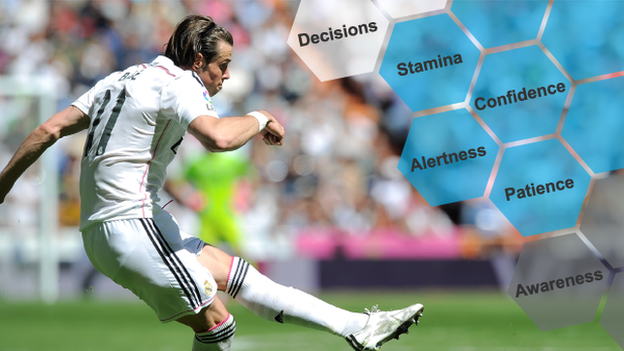
The areas above will form part of a player's sleep profile
"Gareth had only just joined the club and he had a lot of new stuff to deal with," Littlehales told BBC Sport. "He identifies with being an owl - he hates the mornings. He's also got a young child, which can have an effect on sleep."
Get caught napping
Bale's biological clock - or circadian rhythm, external to give it its proper title - means he naturally falls asleep and wakes up at later times, leaving his energy levels at their lowest early in the morning, before peaking in the afternoon.
It's a problem Littlehales has encountered with countless athletes and in a bid to combat disruption to the body's preset patterns - which can also occur following European fixtures which finish late in the evening - he recommends naps.
One player he worked with at Manchester City told him of his routine in the aftermath of Champions League games, which would see him stay up until 4am as he struggled to get to sleep with the adrenaline from the game still in his system.
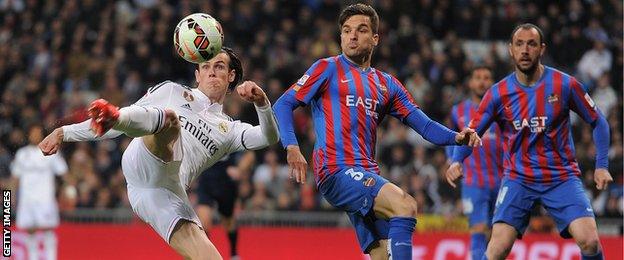
Wales and Real Madrid forward Gareth Bale 'hates early mornings'
"He'd stay downstairs on the Xbox until the early hours. He'd fall asleep on the sofa and wake up mid-morning because he didn't have training the following day - he was completely out of sync," Littlehales said.
"Your body has two in-built nap times when energy levels dip - the first between 1pm and 3pm and the second between 5pm and 7pm.
"Now he just works around the kick-off. Before and after the game he has a routine. If he's got a 7:45 kick off at home, his bed time is 2am. He gets up at 6:30 and has breakfast. If he's still tired, he'll have a 90-minute nap at those times and catch up with his sleep that way."
'Stay off your phone at bedtime'
At Southampton, no stone has been left unturned in the quest for a perfect night's sleep. Every morning, each member of the squad uses a bespoke wellbeing app to fill in a questionnaire on their own personal tablet given to them by the club.
Players are asked to mark their quality of sleep, mood, muscle soreness and general level of fatigue out of 10. If the level of sleep is below an individual's threshold they will begin using devices to monitor them at night.
The club's head of sports science, Alek Gross, told BBC Sport: "We do have players who have been prescribed individual sleep kits to aid their sleep throughout the week. They'll have a specific duvet and pillow thickness, perhaps blackout curtains that are specific to their needs.
Nick Littlehales' top tips for a good night's sleep |
|---|
Humans sleep in five phases which repeat themselves every 90 minutes. Five cycles equates to seven-and-a-half hours which is enough for the average adult. |
Begin a pre-sleep routine 90 minutes before bed - start turning off televisions, mobile phones and other electrical devices which give off bright light. |
Have a shower prior to sleeping. Your body temperature will cool after coming out of the shower and ease you naturally into a state of sleep. |
Turn your radiator down - a cool 16-18C is ideal. |
Drink a glass of warm milk before bed. Dairy products are rich in tryptophan, which aids the production of sleep-inducing chemicals serotonin and melatonin. |
"Temperature in hotel rooms is more of a problem. Ideally it needs to be 16-18 degrees. Players have their own room on trips now so we can really tailor to each individual.
"We advise the players against looking at mobile phones and television screens 90 minutes before bed - even the red light on your TV can affect your circadian rhythm and keep you awake."
Players also have a list of prohibited foods and drinks they are warned against consuming in the evening. Caffeine and liquids high in sugar are off the menu, as are fat-laden meals, which take longer to digest and raise body temperature, which in turn slows the process of falling to sleep. All players are given a milk-based protein drink to aid recovery and induce sleepiness.
Eat, train, sleep, repeat
Attitudes towards sleep in football are changing. Manchester United installed sleep pods at the club's Carrington training ground for players to nap in between double sessions during the summer, while Manchester City's new £200m complex has 32 en-suite bedrooms each decorated with sleep-inducing wallpaper - a light green design with ever decreasing circles.
At Liverpool, players use various types of monitoring technology to detect movement during sleep, including wrist devices and heart-rate straps.
The club's sports science consultant, Barry Drust, said: "We've adopted a lifestyle-orientated approach. It isn't standard for all the players at Liverpool to have their sleep monitored but it does happen relatively frequently with individuals, depending on the situation.
"Football is a team sport, but it's a team sport made up of individual athletes, so the philosophy at Liverpool is much more about trying to create individual strategies for individual players."
In October Liverpool manager Brendan Rodgers applauded Raheem Sterling's maturity in complaining of tiredness to England boss Roy Hodgson and sitting out the 1-0 win over Estonia - it might just be a sign of things to come as players look to sleep their way to the top.
- Published22 April 2015

- Published17 April 2015
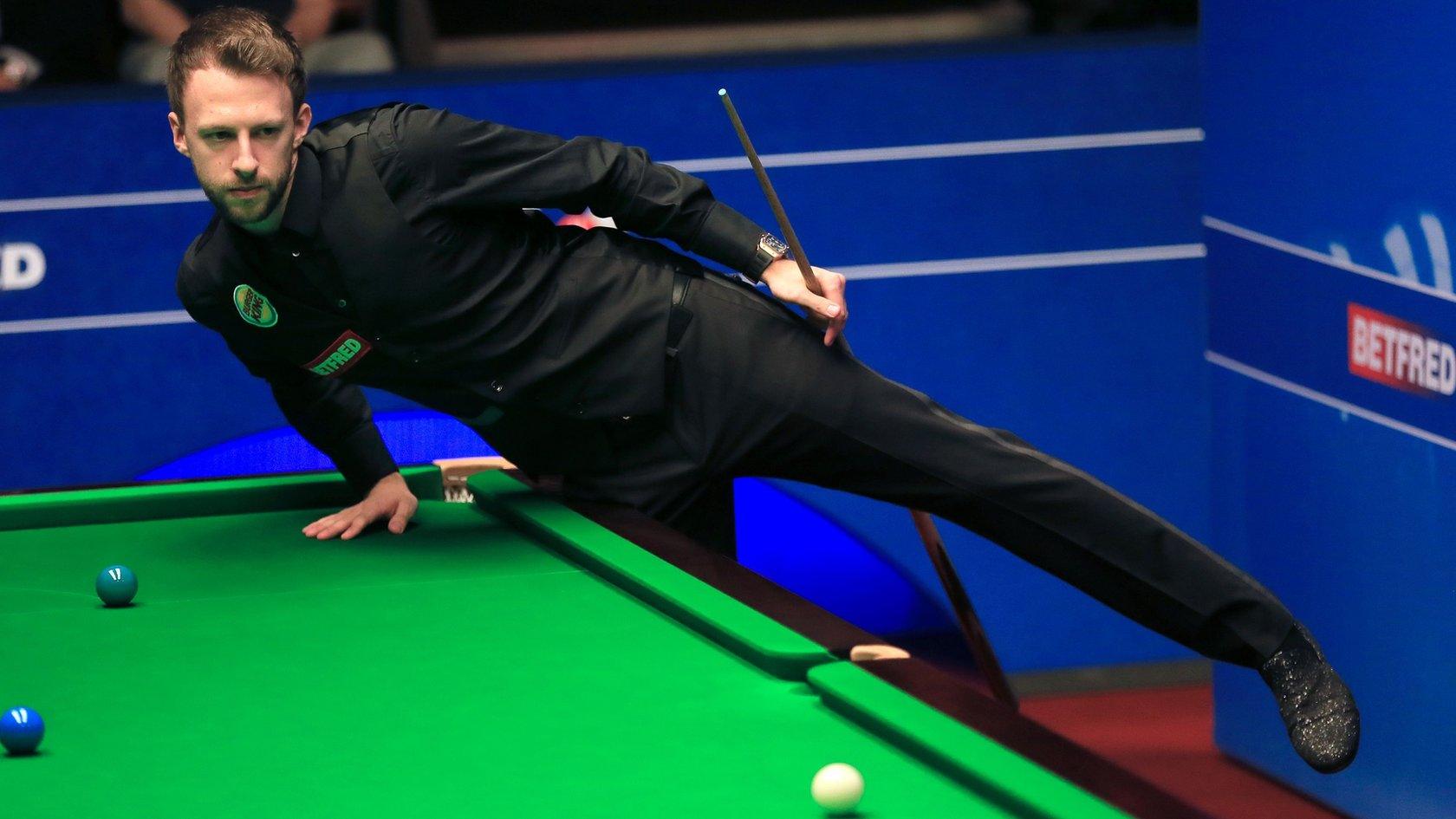
- Published22 April 2015
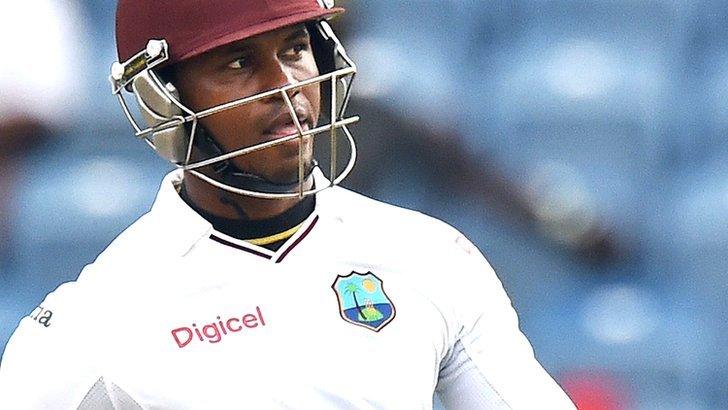
- Published21 April 2015
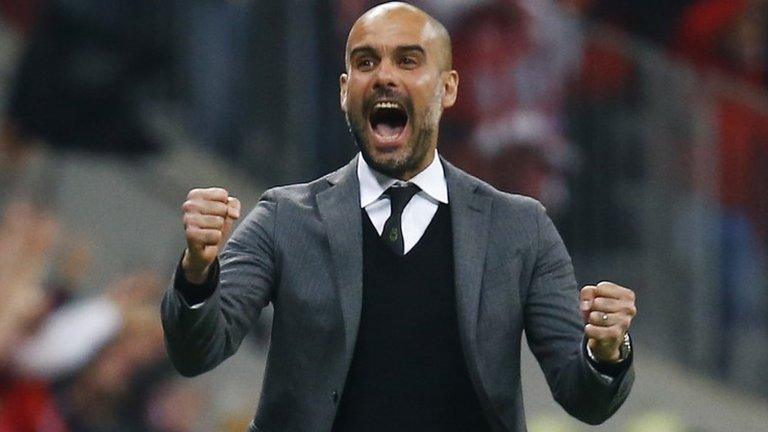
- Published17 April 2015
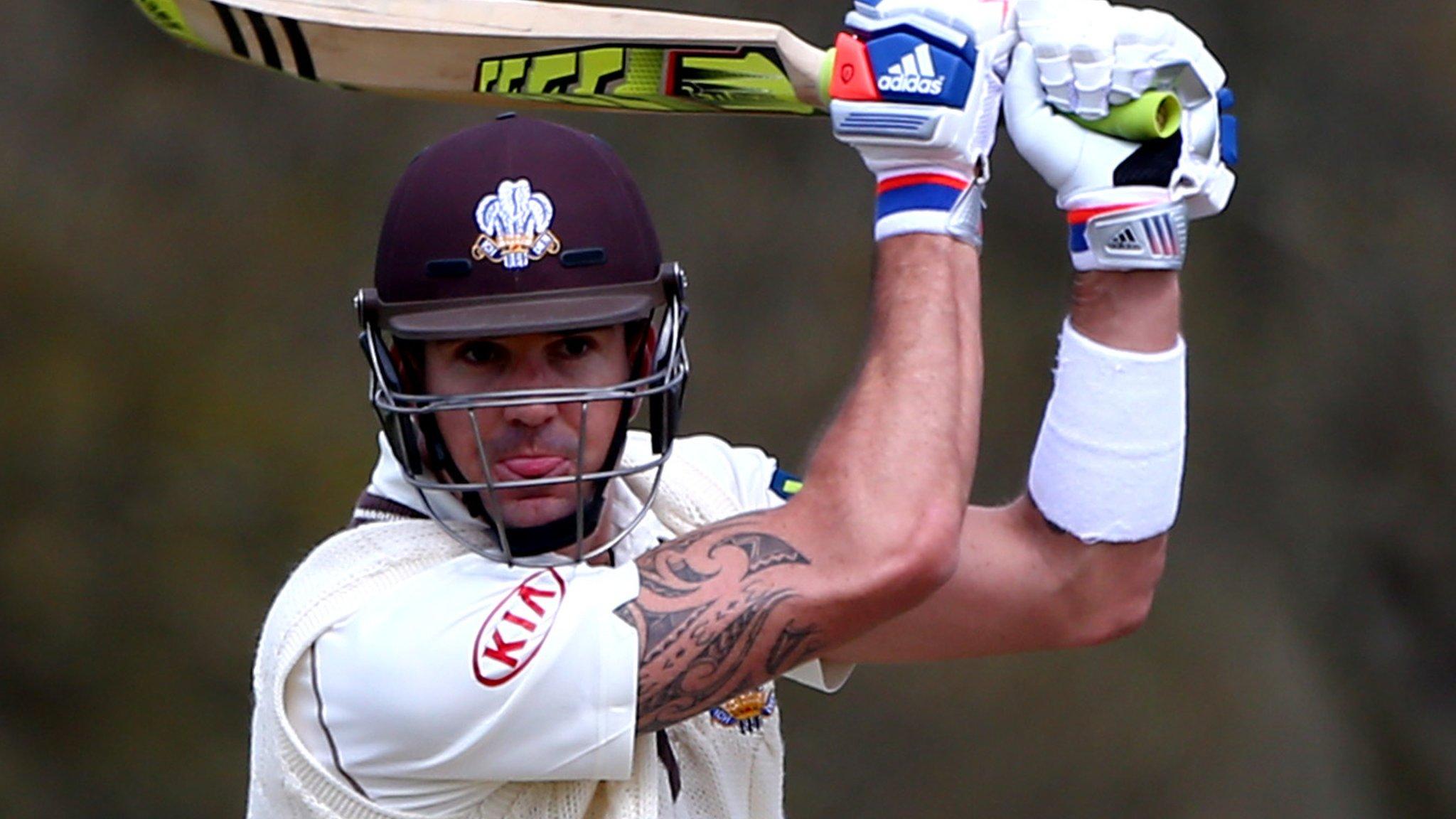
- Published20 June 2016

- Published7 June 2019

- Published2 November 2018
